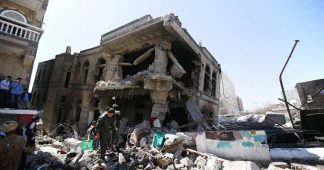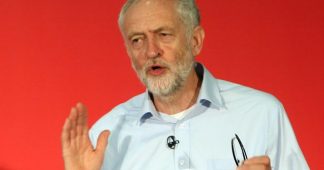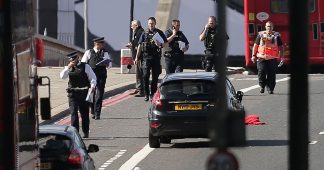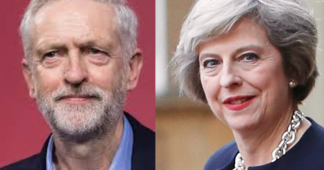A pair of terror attacks that have rocked the UK in the last two weeks have come just before the country’s general election. Some believe that the timing of the attacks is not coincidental, as one of the candidates has pledged to halt arms sales to Saudi Arabia – a known sponsor of terrorism.
By Whitney Webb
MINNEAPOLIS (Analysis)– With the latest terror attack to befall London taking place less than two weeks after the concert bombing in Manchester, many are wondering about the timing and frequency of the attacks. Both attacks occurred in the lead-up to Thursday’s general election, leading some to theorize that there may be a link between the election and the uptick in terrorist activity.
However, one such explanation has been widely overlooked. Historical precedent and the high stakes of this upcoming election suggest that one of the UK’s allies – Saudi Arabia – may have had a much more active role in the attacks than has been perceived beyond its well-known penchant for funding terrorist groups.
Saudi Arabia has been known to threaten foreign governments, particularly the UK, with an uptick in terrorist activity in the event that arms deals to the Gulf monarchy are put on hold or limited in any way.
Previously released court papers reveal that the Saudis had threatened the UK with an increase in terror attacks if the government of former Prime Minister Tony Blair chose to move forward with a corruption investigation concerning sales of arms to the Gulf nation.
According to official documents, Saudi Prince Bandar bin Sultan, head of Saudi Arabia’s now-defunct National Security Council from 2005 to 2015, told Blair in December 2006 that the UK would face “another 7/7” and the loss of “British lives on British streets” were the investigation to continue.
Bandar stood accused of taking over 1 billion British pounds in secret payments from BAE, the UK’s largest arms manufacturer – and the world’s third-largest. Blair subsequently halted the inquiry.
In the current UK political landscape, there is no greater threat to UK-Saudi arms deals than Jeremy Corbyn, the leader of the UK’s Labour Party. In addition to being a long-time critic of UK arms sales to the Saudis and other governments that have been accused of human rights violations, Corbyn has vowed outright to suspend all arms sales to Saudi Arabia if he wins this Thursday’s electoral contest.
The decision was described as part of a Labour plan to return to an “ethical foreign policy” focused on “nonproliferation and disarmament” and led by a concern for human rights.
We need to have some difficult conversations, starting with Saudi Arabia & other Gulf states that have funded and fuelled extremist ideology pic.twitter.com/dZuGWbcAYL
— Jeremy Corbyn (@jeremycorbyn) June 4, 2017
In contrast, the Conservative Party, now led by Theresa May, has been eager to provide the Saudis with massive amounts of weapons. Under former Prime Minister David Cameron’s six-year tenure, UK arms sales to the Saudis totaled approximately 5.6 billion British pounds.
May, who became prime minister following Cameron’s resignation in 2016, has been an ardent supporter of ties between her nation and Saudi Arabia. Most recently, her government has blocked the completion of a “sensitive” report that details the funding of Islamic extremist groups, allegedly focusing on the Saudis’ leading role in such activity. By preventing that query – much like what transpired under Blair in 2006 – May’s government will keep arms flowing from the British Isles to the Persian Gulf.
Perhaps the Saudi threats to unleash terror upon the UK if its arms deals are threatened are what May was referencing when she argued that selling weapons to the Saudis helps “keep people on the streets of Britain safe.”
Read also
BAE: secret papers reveal threats from Saudi prince
Hillary Confirms Saudi Arabia, Qatar Fund ISIS In Leaked Email











